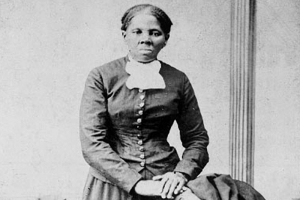Ronald Sider's Excellent Statement on Homosexuality and the Question of 'Gay Christian' Identity

Professor Ronald Sider, the well-known author, theologian, and activist, has now weighed in on the "gay Christian" controversy with a very important statement posted on the Red Letter Christians website (where Dr. Tony Campolo frequently contributes).
Sider's article, "Homosexuality: A Better Approach," begins by stating, "The recent Supreme Court decision need not—and should not—settle the issue for the church. But we deeply need a better approach to our neighbors and our churches' own members, especially those who live with a same-sex attraction or orientation. To find this will require acknowledging the tragedy of our recent history, careful attention to biblical teaching, the continuity of Christian teaching, and the opportunity for a new kind of ministry."
As one example of "the tragedy of our recent history," Sider notes that, "Instead of taking the lead in ministering to people with AIDS, some of our leaders even opposed government funding for research to discover medicine to help them."
For inexcusable actions like this, Sider is right to call the church to repentance for mistreatment of homosexual men and women over the years.
At the same time, he states clearly that we cannot remain silent on the issue of homosexuality, as it would mean abandoning the testimony of Scripture, the testimony of the Church throughout history, and the testimony of a multitude of believers worldwide, especially in the global South.
I applaud Prof. Sider for speaking with such clarity and force on both of these essential points.
He next looks at the biblical evidence, reminding us of the clear and categorical nature of the scriptural witness, also noting that some of the pro-same-sex intercourse interpretations that have been raised in recent years "would have astonished Jesus and Paul."
In the course of a few paragraphs, he shreds the contemporary arguments for allegedly God-approved same-sex intercourse, thereby underscoring what I've said many times before, namely, that without the radical changes brought about by the sexual revolution of the 60s, no one would have dreamed that God's Word could possibly be used to sanction same-sex intercourse. The interpretations are far-fetched, impossible, and without a shred of scriptural support.
Sider's warning, then, is well placed (and even understated), as he notes that, "In addition to the unanimous biblical teaching, church history's nearly unanimous prohibition of same-sex practice and the same teaching on the part of the churches that represent the overwhelming majority of Christians in the world (Catholics, Orthodox and churches in the global South) today ought to give us great pause before we bless same-sex intercourse. So should the fact that those denominations in the US which are now embracing same-sex practice are the same ones that have lost almost half of their members in the last decades whereas in the same time period evangelical churches which still overwhelmingly teach that biblical faith prohibits same-sex practice have flourished, often growing and seldom declining."
That being said, he now lays out his "better approach," calling the church to: 1) nurture a new generation of Christians that esteems marriage and is faithful to its marital vows; 2) listen to and love gay people; 3) take the lead in combating and condemning the physical and verbal abuse of gays; 4) teach parents the right way to respond to their kids who come out as gay.
And so, "We ought to develop model programs so that our congregations are known as the best place in the world for gay and questioning youth (and adults) to seek God's will in a context that embraces, loves, and listens rather than shames, denounces, and excludes."
Yes, "Our evangelical churches should be widely known as places where people with a gay orientation can be open about their orientation and feel truly welcomed and embraced," and, if they are living holy, celibate lives, they should be able to serve and minister without restriction.
I have two caveats to this approach, which I otherwise affirm in most every detail.
First, Prof. Sider makes no mention of the transforming power of the gospel, as if it is impossible for the Lord to change someone's "orientation," as if the Church should not be praying for compassionate, scriptural, and Spirit-empowered ways to minister change to those who seek it, and as if the many who have changed do not even exist.
We can certainly recognize that holiness, not heterosexuality is the primary goal, fully understanding that some (many?) will not see a major shift in their attractions, despite their best efforts. But to ignore the transformational aspect of the Church's work is to ignore an essential facet of the gospel. In Paul's words, "such were some of you" (1 Corinthians 6:11), and that certainly meant deep internal changes as well as changes in behavior.
Second, Prof Sider writes, "Imagine the impact if evangelical churches were widely known to be the best place in the world to find love, support, and full affirmation of gifts if one is an openly, unabashedly gay, celibate Christian."
I understand the point he is making and affirm it, but only with a strong reservation, specifically, with the idea of being "openly, unabashedly gay."
Why should a follower of Jesus be "openly, unabashedly gay"? Why should that be any part of a believer's identity or confession? Why should we take on the world's mentality of celebrating gayness, as if having sexual desires and romantic attractions that were contrary to our Father's will and intent was something to be proud about. Why celebrate something which, if acted on, would be detestable in God's sight?
The whole idea of "being gay" is a modern construct, as recognized by gay scholars and activists as well. In contrast, the Scriptures focus on us saying no to fleshly desires and actions through the renewing of our hearts and minds, recognizing our fundamentally fallen and flawed nature outside of Jesus, from our youth on (see Gen 8:21).
As many ex-gays have stated, the gay mentality (saying "I'm gay" and identifying as gay) is one of the key strongholds that must be broken in order to find true freedom in the Lord.
That means that our precious, fellow-believers who struggle with same-sex attraction should not be put in the special class of "gay Christian" any more than a Christian who has a lifelong struggle with another sinful desire or attraction should be put in a special class (as in "lustful Christian" or "violent Christian" or "alcoholic Christian").
Rather, they should be fully embraced as our brothers and sisters, receiving all the help they need from the Church as they seek to honor the Lord, but without embracing a gay identity or needing to be "openly, unabashedly gay." And if they feel that openness is important (as in, "I struggle with same-sex attraction"), they need to be careful not to let that define them.
What is interesting is that Prof. Sider made this very point earlier in this statement, writing, "It is profoundly unbiblical to argue that one's sexual orientation is the defining aspect of one's identity . . . . For Christians, our relationship to God and the new community of Christ's church provide our fundamental identity, not our sexual orientation. That is not to claim that our identity as men and women with particular sexual orientations is irrelevant or unimportant for who we are. But that sexual orientation dare never be as important to us as our commitment to Christ and his call to live according to kingdom ethics."
This, rather than being "an openly, unabashedly gay, celibate Christian," is where the emphasis should have been placed.
All that being said, Prof. Sider's statement is tremendously important, and I pray that it resonates deeply with believers, especially the younger generation and those who tend to be left-leaning evangelicals.
Perhaps my esteemed elder colleague will also prayerfully consider the points I have raised so that even more leaders and believers could add their unqualified affirmation to his words of compassion and truth.





























